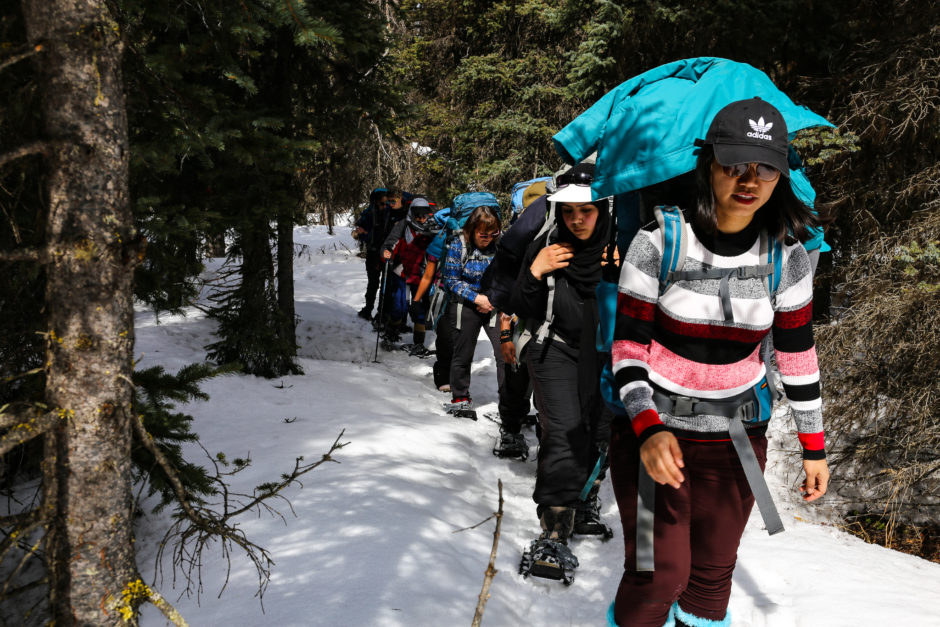May 18, 2019
'Tis the season for giving! That's why we're bringing back some of our favourite stories from 2019. This story was originally published on May 18. Enjoy!
As firelight flickers across her face, Mireille Ngabo tilts her head back and gazes at the night sky.
The stars offer hope, and make her feel at home.
“Sometimes they remind me about my people who are dead,” says Ngabo, who lost friends and family while fleeing a civil war in her home country of Congo.
On this dark night, she sits around a campfire in the Rocky Mountains with seven other women who are also refugees, from Syria, Congo and Myanmar.
Each of them hopes to experience a quintessentially Canadian adventure, to make friends, to find a sense of belonging in their new country.
“I grew up without a nice childhood,” says Ngabo, 19. “All my life, I was hoping to have a nice life, like a peaceful life. Where I can think about tomorrow instead of thinking about how to find refuge. All my life I’ve been thinking, ‘I wish God helps me to find a home.’”
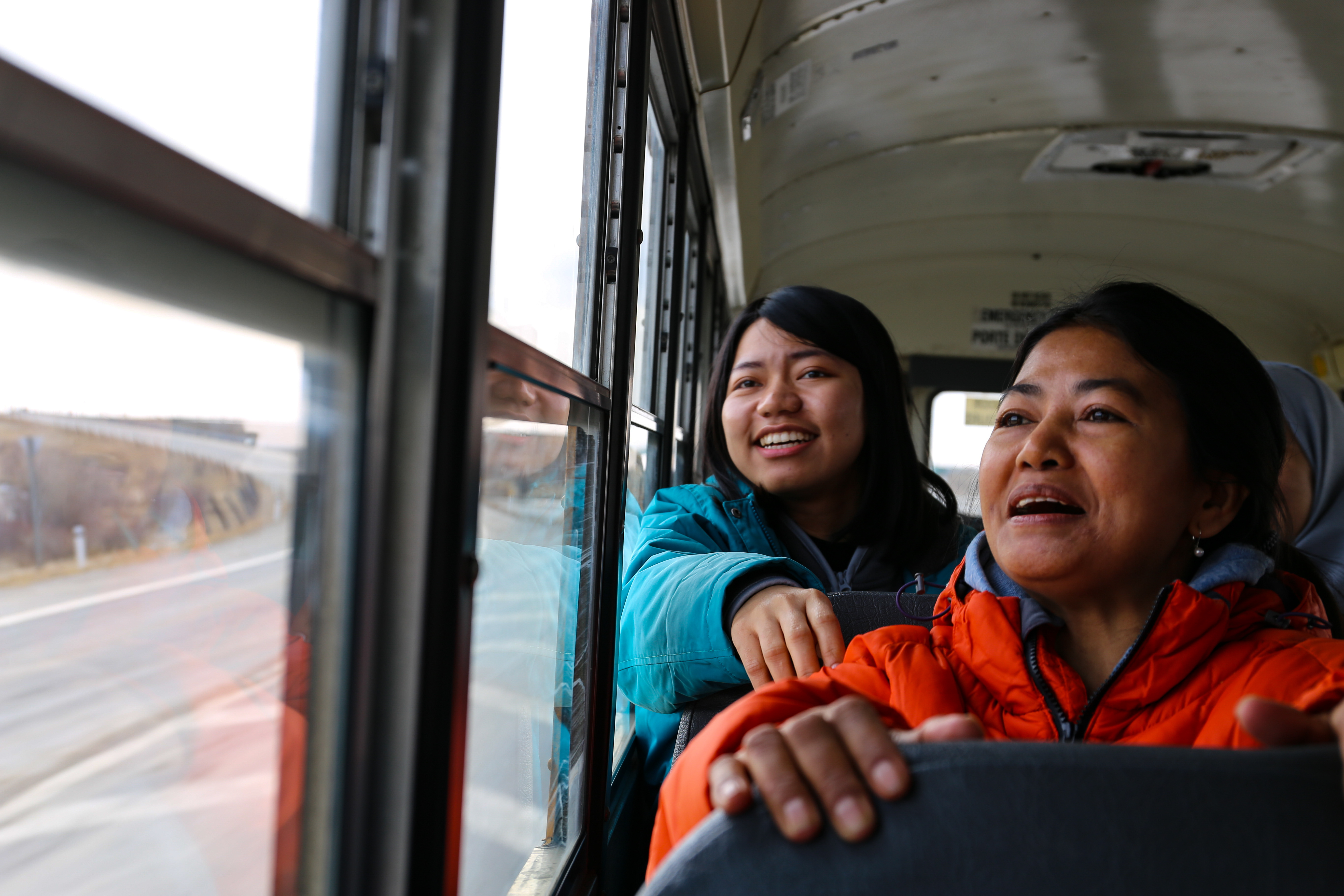
First time
The women have come together on this trip to hike 10.2 kilometres to the Elk Lakes Cabin, nestled in B.C.’s Elk Lakes Provincial Park. This is the first time most of them have seen the mountains, or spent a night in the woods.
At the trailhead, under the watchful eyes of five trip leaders, the women shove warm clothes, sleeping bags and enough food for two days into oversized packs. A few sneak fake eyelashes, lipstick, chocolate bars and bags of chips into the various compartments of their bags.
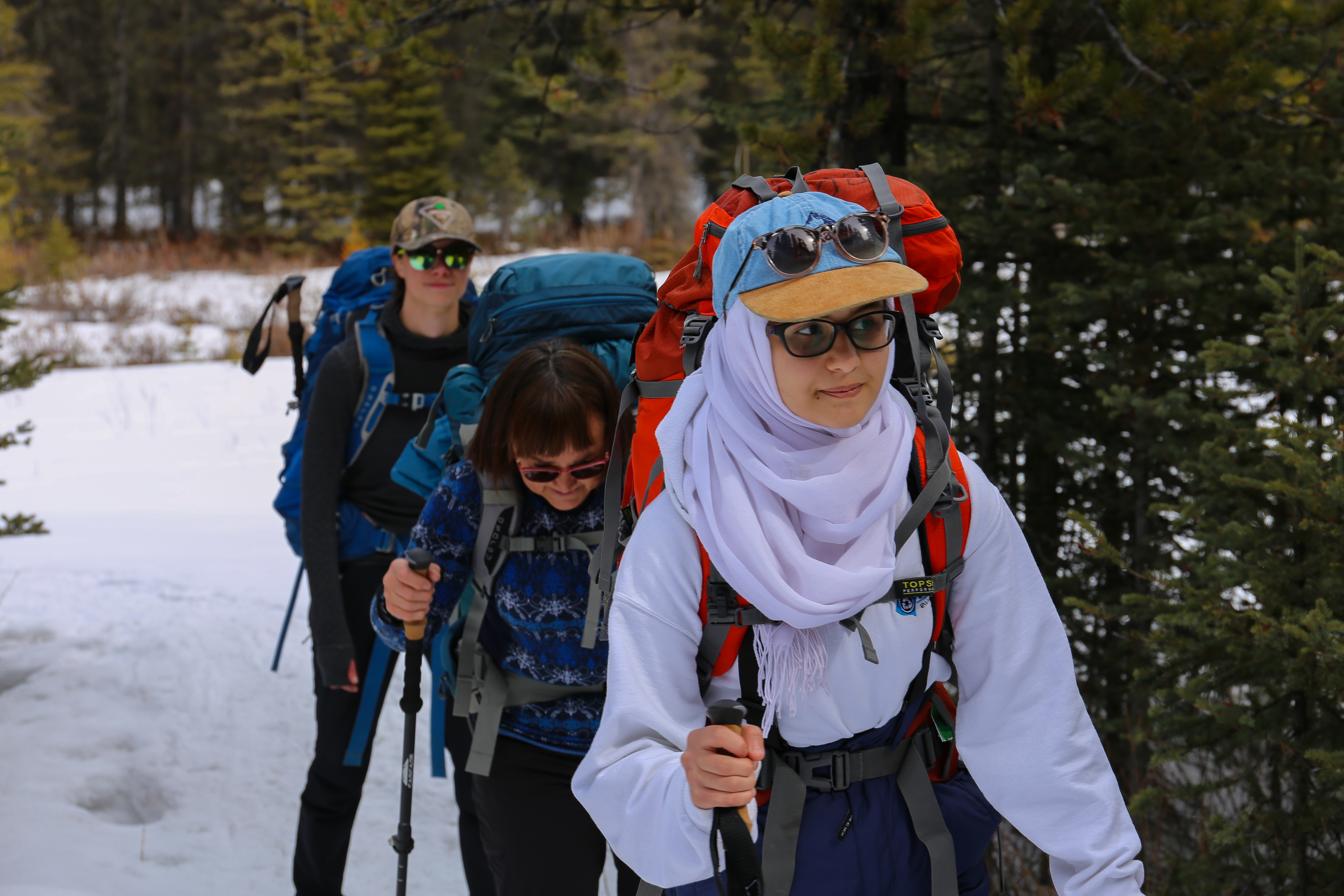
The sun glistens off the snow-covered trail as the women set out, snowshoeing towards the jagged, snow-capped mountain peaks. Far in the distance, a wooden arch marks the Alberta-British Columbia border.
The trip has been organized in partnership by the Edmonton section of the Alpine Club of Canada (ACC) and Catholic Social Services (CSS), the city’s largest support service for immigrants and refugees, to introduce recently resettled refugees to the Rocky Mountains.

'Share our culture'
“I want to do this trip because you can get more experience in Canada,” says Ciang Uap, from Chin State, Myanmar.
Uap, 30, fled the civil war in Myanmar with her parents in 2018, and says she never imagined she would be in this situation.
“No one wants to be a refugee in their life, because refugee means you’ve been through many difficulties,” Uap says.
Her biggest goal for the trip, she says, is to meet new friends, because it’s easy to “be alone in our community.”
“I’m so excited, because we came from different countries, so I think we can share our culture.”
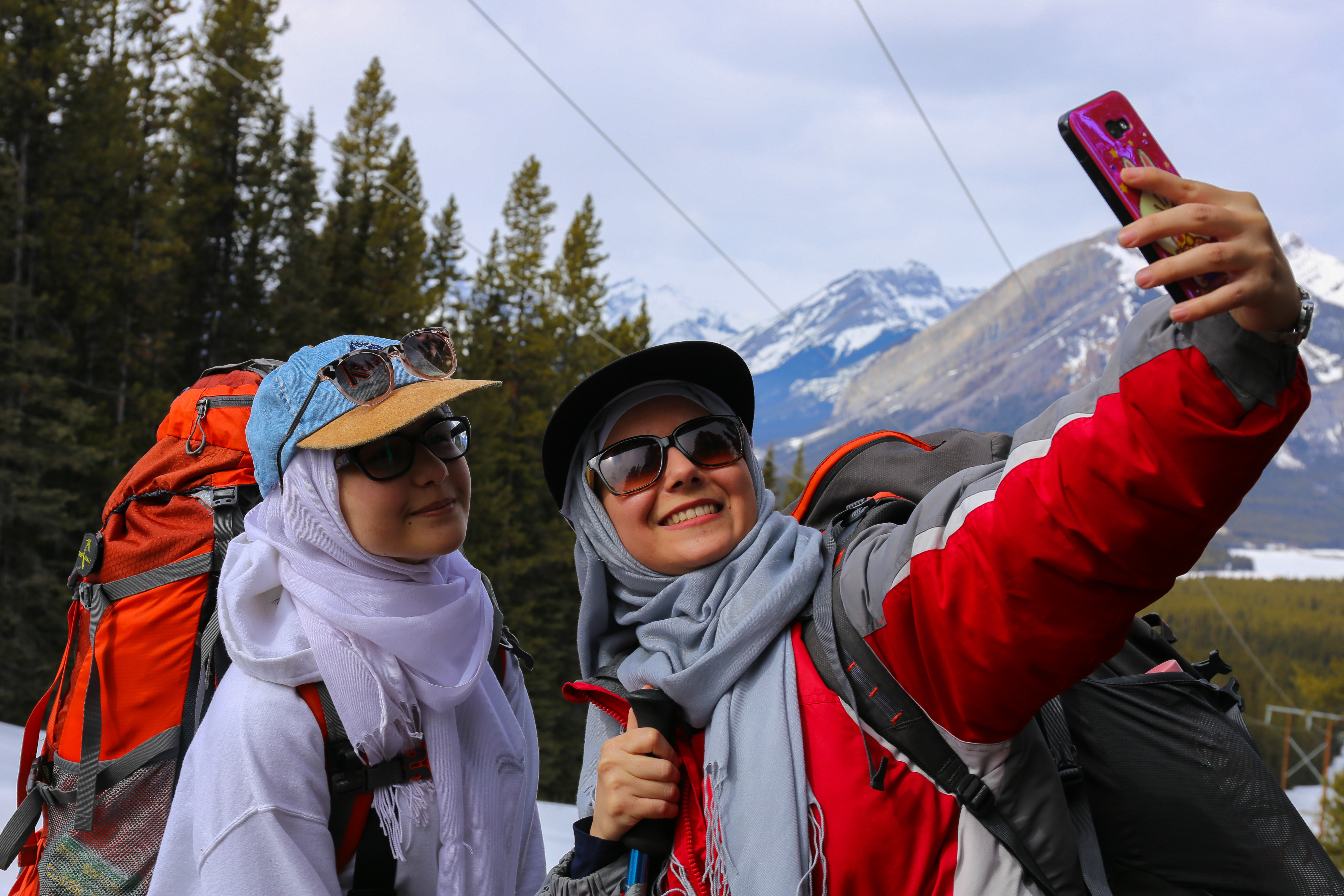
At the cabin, each woman shares in the chores, from chopping wood and lighting the wood stove for warmth to disposing of grey water, from washing dishes to mopping the floor.
The alpine log hut, surrounded by craggy cliff faces, icefalls and dense trees, is cozy and inviting, with communal sleeping, eating and cooking areas.
There is no electricity or running water; instead, the group relies on propane lights and boiling snowmelt.
Khet Soe, who comes from Myanmar, volunteers to teach the group how to start a fire in the pit outside. She talks about gathering kindling, and the best spots to direct the flaming match as Uap translates for the group.
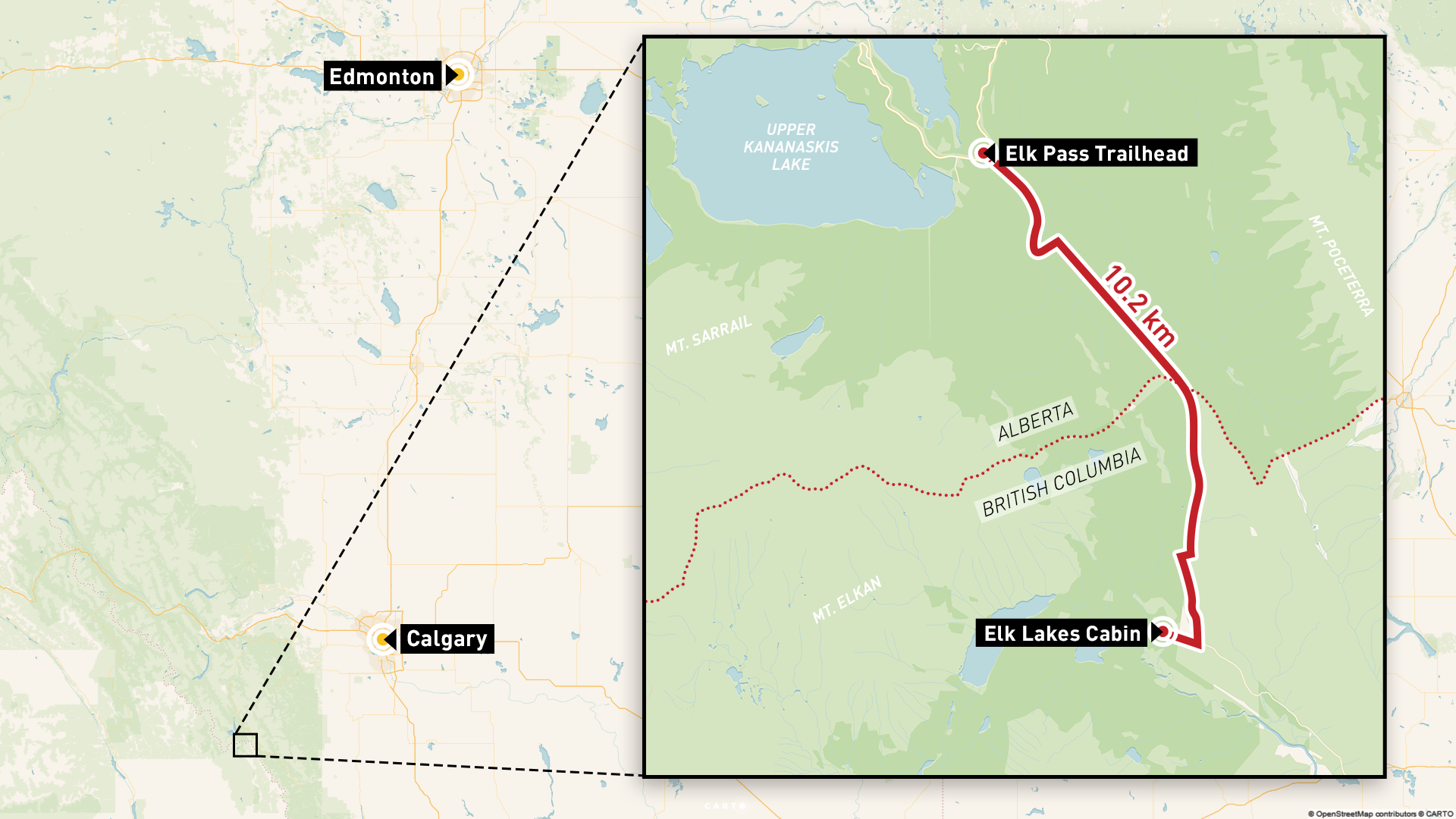
Annual adventure
This April trip isn’t the organization’s first attempt to bring a group of refugees to the Rocky Mountains — the inaugural trip was a hike up to the Bow Hut, perched on the edge of the Bow Glacier, in September 2018.
After its success, co-ordinators decided to make the backcountry trips an annual endeavor. For the second year, the ACC and CSS decided to plan a women-only trip.
“It’s important than women have the opportunity to do things together, because it’s a totally different dynamic,” says Isolde Schmid, who works in intercultural education at CSS. “In a lot of cultures, the men take most of the attention and the women are more in the background.”
Learning to make a fire or chop wood together are just a few examples of situations where the women would usually let men take over, she says.
“It’s good for the women to see their own strength.”
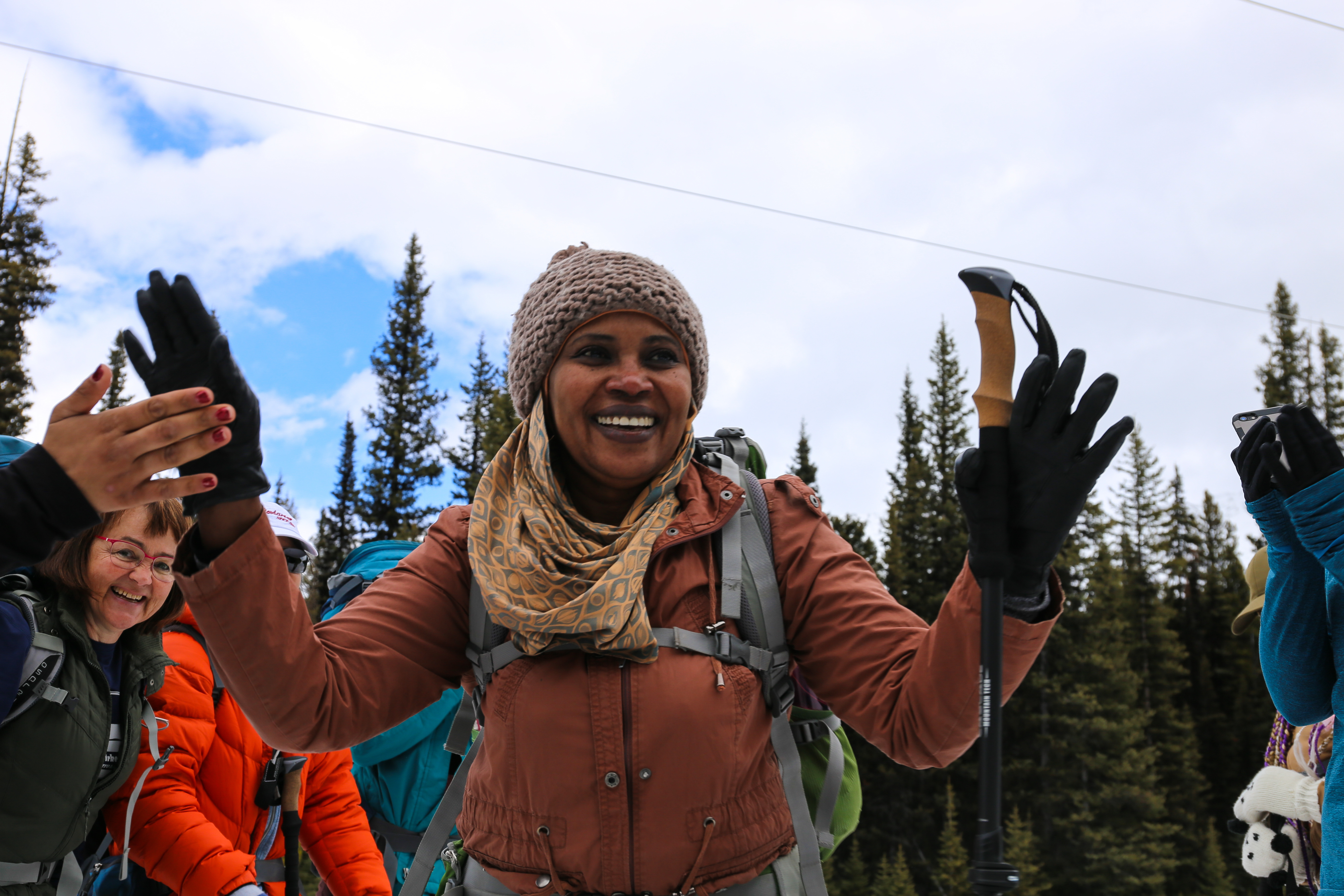
Ngabo, who moved from Congo to Burundi to Uganda, says she always imagined visiting the mountains to go camping, but didn’t picture doing it in the snow.
“In Uganda, we weren’t allowed to go to the mountains because we were refugees and the mountains are only for citizens,” Ngabo says, explaining that she’s grateful for the chance to visit the mountains during her first year in Canada.
Ngabo's sister, Aimee Mugisha, joined her on the trip. They are one of three sets of sisters on the women-only hike.
“It’s not only about going to the mountains, it’s about how we can support each other and how women are strong,” Ngabo says.
“We are encouraging each other. If someone is getting tired, we give a hand.”
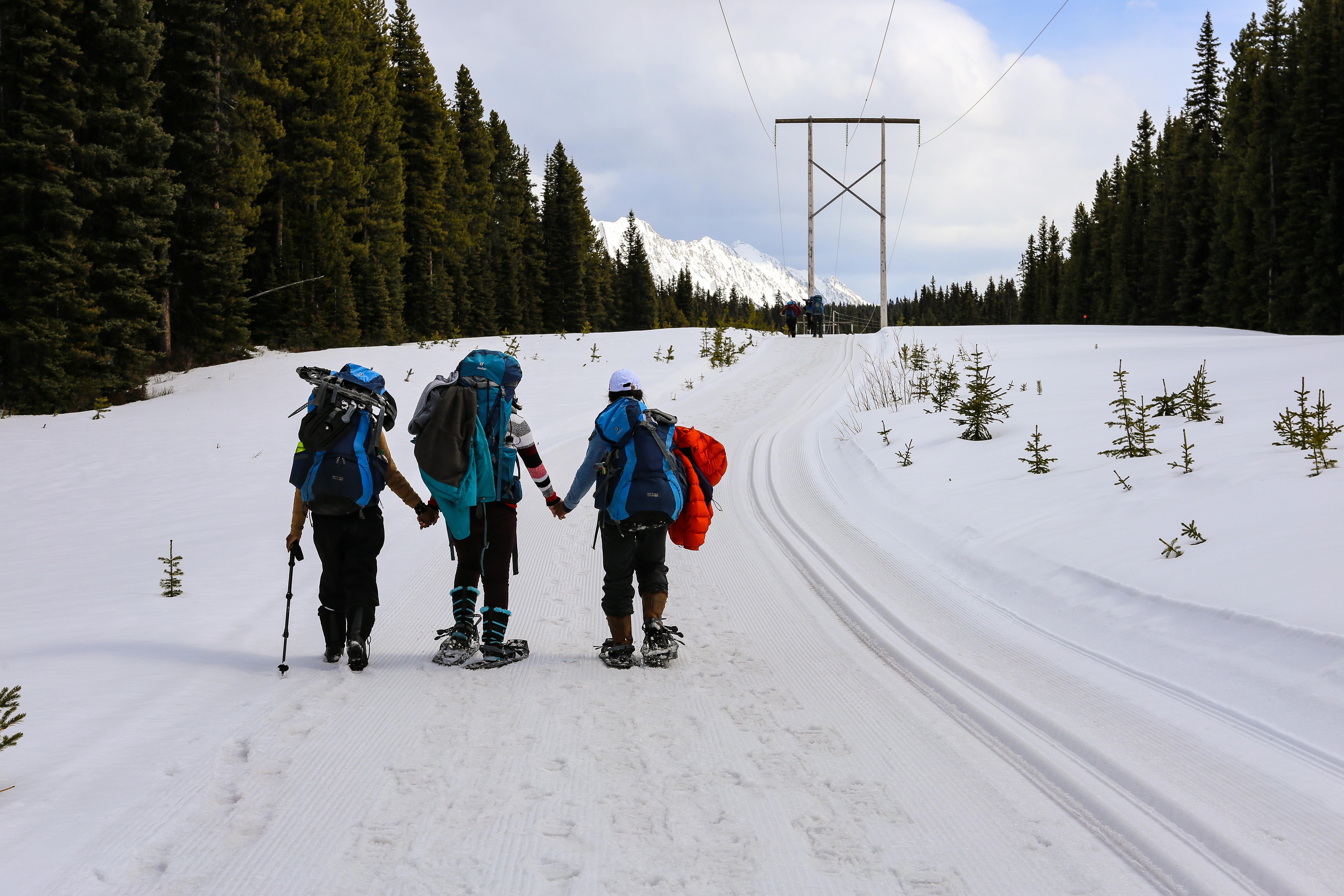
Holding hands
A couple of the women hike hand in hand, only letting go when the trail narrows and they have to fall into a single-file line.
“We hold each other’s hands to give energy to each other,” Uap says.
Though some of them only met each other once or twice during practice hikes in Edmonton’s river valley in the lead up to the trip, the women don't hesitate to display that kind of care from the beginning.
At the trailhead, they help each other put on makeup, carefully applying lipstick and strokes of mascara.
One woman brings enough chocolate bars and chips for everyone on the trip.
Whenever anyone falls or sinks into the waist-deep snow, the others take a moment to laugh it off, then hoist her up and continue.
“We helped each other all the way,” Uap says. “It means a lot to me, I love them.”

After packing around a single wood table on which to eat bowls of steaming bean chili, a few of the women wander outside to sit around the fire.
“We are looking for the stars,” says Uap.
Someone wonders out loud if one of the stars could be an airplane coming to get them.
“In my culture, when we see a star go down, an angel dies,” says Soe, 48.
“Whenever I’m stressed out, I like to look at the stars, they give me hope,” Ngabo says.
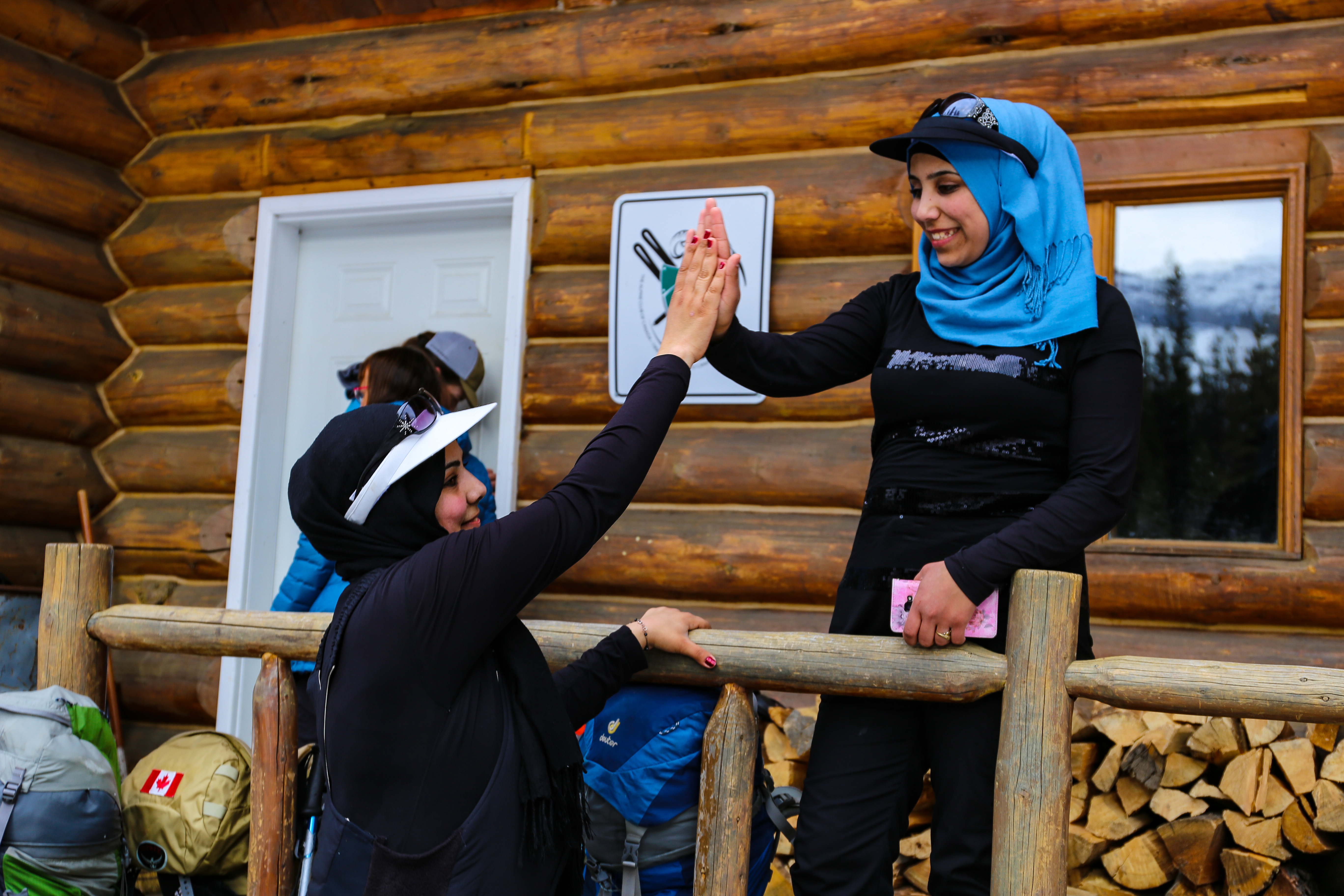
Earlier, while packing for the trip, Ngabo talks about how special the stars make her feel.
"No matter what, where you are, you can still see the sky," she says, two days before the hike.
"The sky gives you that experience and vision that you ... are at home. When I was home, I was seeing the stars, and when I'm in Canada here, I can still see the stars. I don't know how to explain how special the star is."
All of a sudden, the women shriek — a shooting star is crossing the sky. Uap closes her eyes and makes a wish.
The next day, as they sit together and discuss their favourite parts of the trip, Faten Alsaleh chooses the moment when they sat looking at the stars.
“When we sit around the fire, it’s so beautiful,” says Alsaleh, 22, from Syria.

‘This is my home’
Backcountry trips usually go hand in hand with a goal to climb a challenging peak or explore unfamiliar terrain.
While no “official” summits are ticked off, the women climb their own version of a mountain by conquering their first overnight hike, and building friendships they hope will last long after the last pair of hiking boots dries out.
“From the beginning of this trip I really wanted to make friends,” says Ngabo. “One moment that stood out to me was sleeping together. One big bed, sleeping all of us together.”
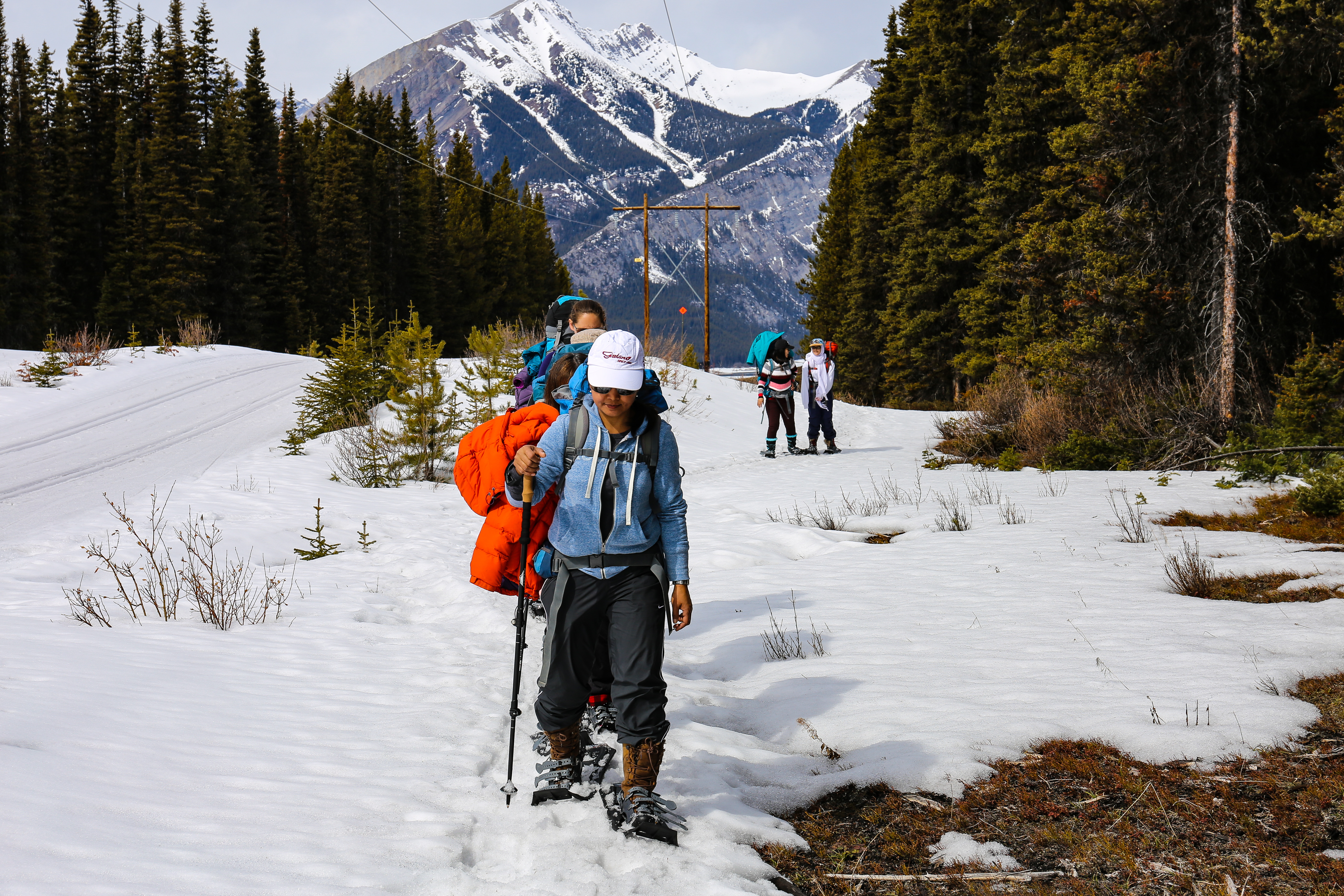
As the women head back towards the trailhead and an awaiting bus, a few begin to sing in Burmese. Their voices blend together as they trek through the snow.
The cabin quickly fades out of sight, a memory of crackling fires, sharing meals and stargazing that will serve as inspiration for future adventures.
“I want to come again to this trip with the same friends — strong ladies,” Ngabo says. “Going camping ... it’s really connected me to this country.
"This is my home.”
